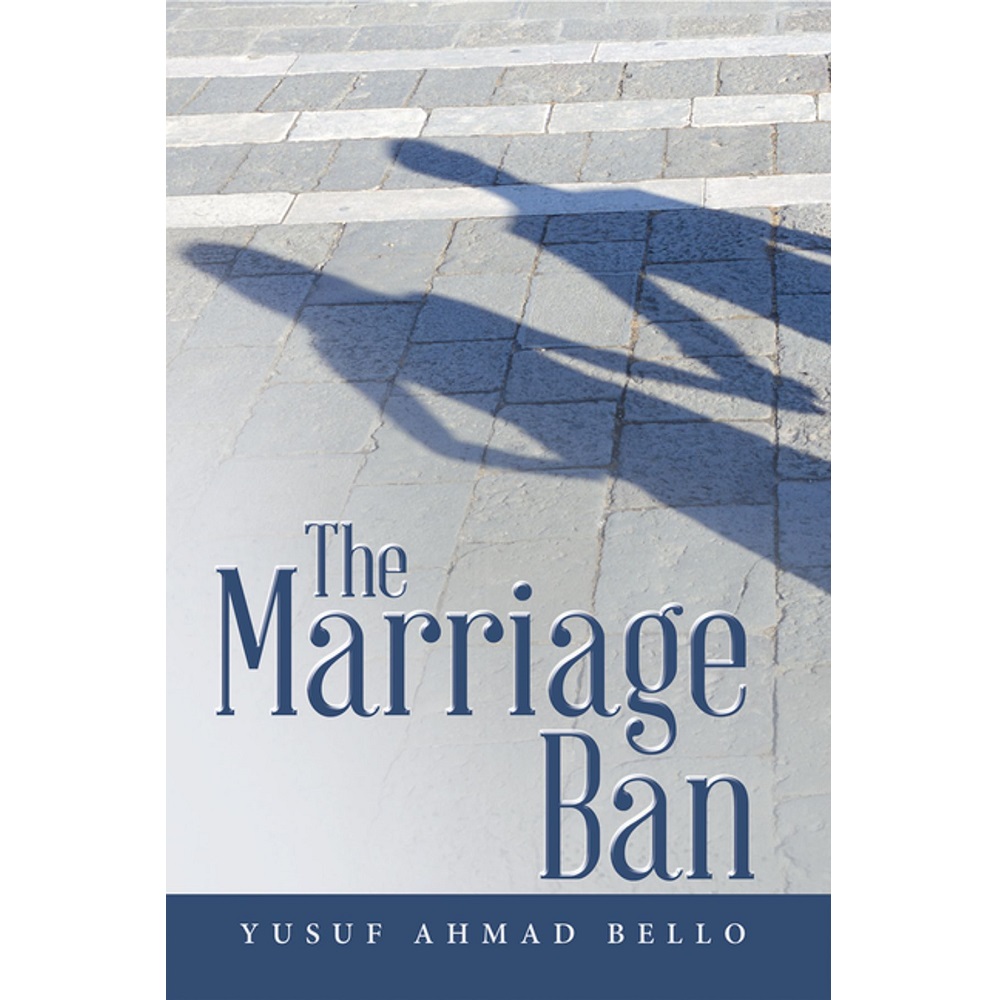Title: The Marriage Ban Administration in Nigeria
Author: Yusuf Ahmad Bello
Publisher: Archway Publishing
Pages: 248
Reviewer: Salamatu Sule
The Marriage Ban’ by Yusuf Ahmad Bello is set in the imaginary state of Hasoumiya in the West African Subregion and focuses on its political and economic tension.
The scenario can be likened to that of Niger Republic and Nigeria.
It takes careful analysis to understand the satire around the military administrations of some of these countries to fully understand the book.
The novel introduces to readers, Zaidou, a tailor in his forties who lives in the rural town of Masara.
Throughout his adult life, he has been in a long quest for marriage after failed courtships.
First, he falls in love with Talatou, a townswoman of questionable character and their love crumbles. Zaidou’s path crosses with Zakiyyah, the thirty-year-old daughter of a wealthy and powerful diplomat whom he later proposes marriage to in the hope that they would have a happy life together.
But this dream is ruined by the imposition of a five-year ban on all marriages by his country’s brutal dictator, Gambo.
Failure to adhere to the ban risks imprisonment and even execution, so Zaidou and Zakiyyah make plans to leave Hasoumiya and go into exile in Nigeria and get married.
However, this cannot happen as Zaidou is imprisoned on a false allegation of attempted assassination of a politician.
After spending two years in prison, he comes out to find his country engulfed in an insurgency that aims to end the marriage ban.
He also learns that Zakiyyah has been taken away by the dictator.
So, he joins the insurgency in the hope of winning back his heartthrob.
While the title is deceptive as to make you think of a love story, this book is a satire about dictatorial military regimes which tended to dominate the West African subregion at a certain stage.
Reading in between the lines, one can see the similarity between the events in the book and those that took place in Nigeria under past military governments before the transition to a democratic government.
‘The Marriage Ban’ referred to in the book is a metaphor for the ban on politics as well as the freedom of association which characterises military administrations.
All the characters depicted are personifications of the various events that took place before the transition.
Zaidou is a tailor who is forced to join the struggle against dictatorship for a personal reason until it becomes inseparable from politics.
The book presents different themes ranging from love, hatred, sacrifices, expectations and disappointments.
All the themes reflected in the book are obtainable within the larger polity.
The struggle by Chief Ousmane to lead the opposition against the rule of dictator Gambo at the risk of his life and family is a reflection of the sacrifices some prominent people made in confronting dictatorial actions.
The novel reechoes flashes of the 1947 incident where a brewery is brought down to set the tone for the major crisis that shows the fundamental feature of African leadership.
The resistance against the marriage ban took so many dimensions including coup plots by people close to leader Gambo.
“Babawo began to address them. He told them that the Kwaskwarima
had taken over the motor park and all the suburbs around it.
He told them that they would be used as ransom
for the release of Chief Ousmane and other rebels in government custody”.
(P.224 Marriage Ban)
“Chief Ousmane looked away from the pictures, telling the man he was sorry for his loss.
“Peace will return to our country,”
he assured him. “No problem in life is permanent.”
“For now, I have to look for safer countries I’ll put my money in.
When I’m sure peace-” The man went quiet.
There was a sudden look of shock on his face.
“Wait, aren’t you Chief Ousmane?” he cried.
“Yes, I am.” “You are the rebels’ grand patron, aren’t you?”
Chief Ousmane felt like he’d been struck with a sword.
“I have nothing to do with them, man!” he retorted.
“If I did, I wouldn’t be here.”
(P.192)
This novel is an interrogation of the series of leadership failures as well as the people’s efforts to dethrone the government of the day and enthrone a leader who will sympathise with the masses.
But in trying to achieve this, hell is let loose.

 Join Daily Trust WhatsApp Community For Quick Access To News and Happenings Around You.
Join Daily Trust WhatsApp Community For Quick Access To News and Happenings Around You.


